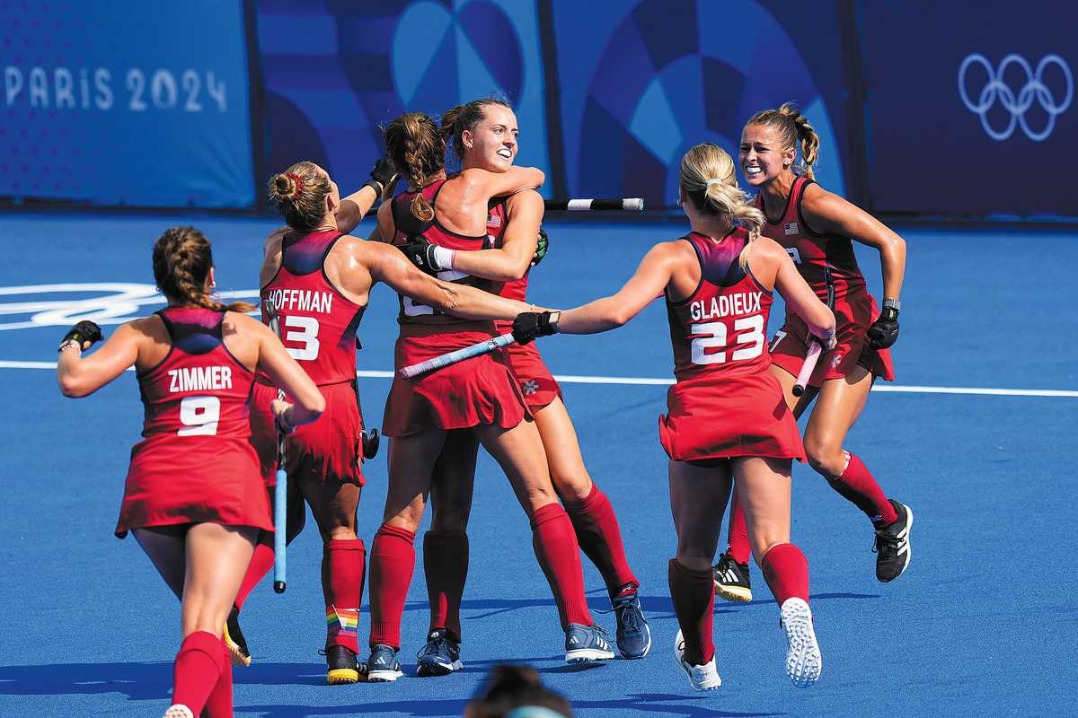Breaker hip-hops her way to victory

Chinese teen claims historic first-ever Asiad gold in dynamic street dance discipline

Audiences were wowed by the display of hip-hop culture at the 19th Asian Games in Hangzhou, as a total of 45 breakers, or B-boys and B-girls, showed off their impressive moves and skills on the dance floor.
After dozens of tough and tight battles against top breakers around Asia, Chinese B-girl Liu Qingyi, known as "671", claimed the historic first-ever women's gold medal in breaking at Gongshu Canal Sports Park Gymnasium on Saturday.
This is the first time that breaking was included as a medal event at the continental sports gala. With DJs spinning tunes and three MCs hosting the event on a neon-lit stage, B-girls and B-boys needed to react, or freestyle, to whatever music the DJs decided to play, rather than performing a rehearsed, choreographed routine.
"I'm very happy to win gold. It wasn't an easy battle to win because I had many competitions and events beforehand. I just got back to China after the world championships and now I've been participating in the Asian Games," said the 17-year-old.
"It was a tough challenge for me, both physically and mentally, but I'd like to thank my coach and country for giving me this opportunity and helping me, and I thank myself for sticking to the right path. I would also like to thank all the audience for their support today," she added.
Born in 2005 in Central China's Henan province, Liu started learning breaking at age 10. She had tried many other hobbies such as guitar, boxing and taekwondo, before settling on breaking.
"There are no strict conventions or limits in breaking, and it feels free," said Liu.
However, the moves require a lot of hard training and practice. It may take months to acquire one power move, and even longer to enable the breaker to perform it at will in a tense competition.
In the breaking final on Saturday, Liu impressed the audience with her captivating power moves, as well as her innovative performance integrating traditional Chinese cultural elements.
"Chinese culture may sometimes seem a bit abstract. But by infusing these cultural elements into our own breaking moves, we can better showcase Chinese culture to the audience," said Liu.
Having accumulated rich experience from competing in major international competitions in recent years, Liu was satisfied with her overall performance at the Asiad.
"I think I did a pretty good job today (Saturday), because I'm competing in China and I have the support from the audience. I'm quite good at power moves and I'm making improvements in other aspects," said Liu after winning gold.
"When I compete, I face a lot of challenges. Sometimes, it's quite difficult to pull out all my new moves in competitions, but today I think I did a good job, because I was quite relaxed. In competitions, the most important thing is not just the improvements I've made, but my mentality and how I perform," she added.
Following its Asian Games debut in Hangzhou, breaking will join the lineup of Olympic sports in Paris next year and her gold medal in Hangzhou has secured Liu an Olympic spot in France.
"I think it is a reward for my preparation and training and I think it's every athlete's dream to participate in the Olympics and win honors for the country. I have already participated in many competitions, but I think this gold medal has provided me with great confidence and I'm looking forward to the Paris Olympics," said Liu.
Most Popular
- Chinese table tennis stars Fan and Chen quit world rankings
- Embiid stands tall against Celtics, despite pregame fall
- Wemby scores 42 in a memorable Xmas debut, but Spurs fall short
- Mahomes throws 3 TDs as Chiefs clinch top seed
- Littler is a big deal
- Thohir determined to take Indonesia back to World Cup































